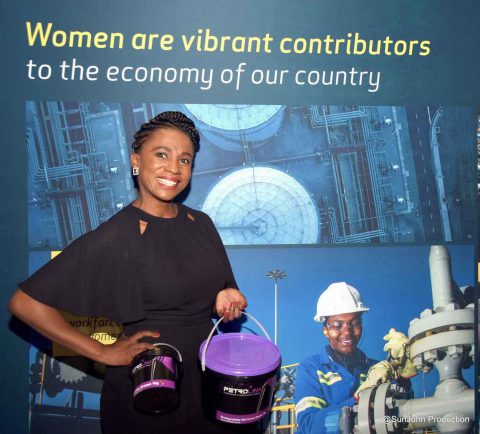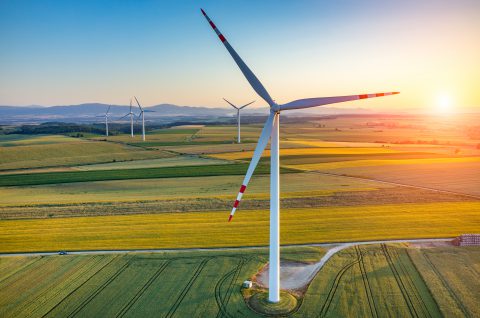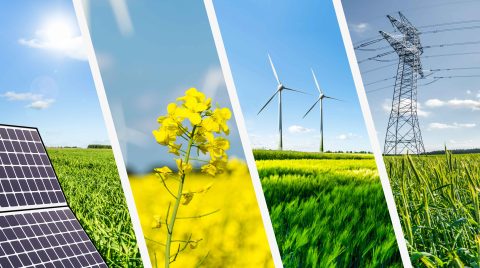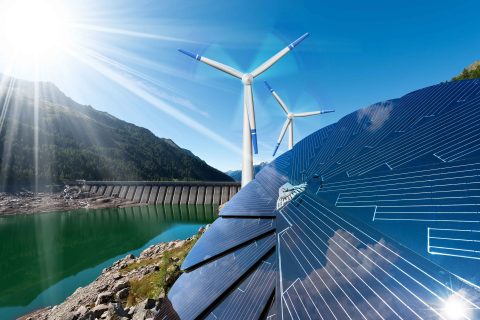Financial Mail Women
The Driving Force
Energy is the backbone on which South Africa’s economy runs, underpinning virtually every other industry.
In 2017, Priscillah Mabelane became the first woman in the history of the country’s oil industry to head a multi-national company, BP Southern Africa. This signalled a significant change in the industry’s transformation journey.
At the time of her appointment in August last year, Mabelane shared with numerous news outlets that while she felt “immensely privileged with this niche opportunity”, she knew she had to excel, in order to set the right example for other women and black people. She added that it was also “unfortunate that this appointment isn’t the norm”.
Lerato Motsamai, CEO of Petrolink, an independent manufacturer of lubrication solutions for the automotive and industrial industry, agrees with Mabelane’s sentiment and concedes that the industry’s pace of gender transformation has been slow.
Motsamai spotted her opportunity in the petroleum industry after years in the industry where she noted an absence of businesswomen seeking opportunities as retailers, wholesalers, distributors and various types of service providers and suppliers in the sector’s wide-ranging value chain.
“It was through this observation that I decided to be part of the solution by entering the mid-stream sector of the industry, and pioneering Petrolink. This put me at the forefront of advocating for the economic empowerment of women.”

Valerie Geen, director on the board of the Southern African Energy Efficiency Confederation and senior adviser and implementation specialist at the Energy Department, Industrial Energy Efficiency Division in the United Nations Industrial Development Organisation, asserts that while traditional energy streams remain important, energy-efficiency and renewable energy are the future and that’s where new opportunities for women lie.
Geen explains that as the drive towards a clean-energy and energy-efficiency agenda accelerates, some of the skills required to participate in a green economy will include technical innovation, data collection, statistical analysis, scenario planning and modelling in addition to research and development, all of which present untapped prospects for women.
“The emphasis on science, technology, engineering and maths helps to direct girls and women to become more active participants in the growth and development of the economy, which will require more technical skills for science and engineering. In recent years, we are seeing more women being trained as energy managers and energy auditors, over and above their engineering degrees.”
Dorah Modise, CEO of the Green Business Council SA (GBCSA), has been leading the charge to green South Africa’s commercial property sector. GBCSA works to mitigate the effects of excess energy consumption and the related CO2 emissions from burning carbon fuels, the pollution of air, water and land, the depletion of natural resources, and the disposal of waste.
Modise believes that seeing the progression of women requires deliberate focus and concrete action and in the same vein, Motsamai stresses that empowering women is about economically and socially advancing them: “There is still a chronic underinvestment of women in the industry due to the gender role expectations being institutionalised through legislative, educational, political and economic systems,” Motsamai explains. She adds that women go further together; and with such a small proportion of women still running businesses in the industry, changing the way the industry views women is crucial.
“So I lead by example through the employment of young women with little or much experience, and I do business with woman suppliers insofar as they are available, and where they aren’t, I make a noise for them to get involved and on board,” she explains.
The GBCSA runs an SME development programme that specifically targets women from previously disadvantaged groups. This programme combines training with a match-making exercise aimed at creating a competitive advantage and therefore easing entry into the market. On a more personal front Modise mentors a number of young women as part of her personal mission to ensure gender parity.
Geen says that in order for women entering the industry to make lasting change, they need to understand the pivotal role that energy plays in transitioning to a low-carbon economy so they can be best prepared and position themselves for success.
“South Africa’s current energy mix and consumption is responsible for 80% of our carbon emissions. Energy access is still a deterrent to more active participation of women in the economy so there are also opportunities to look at how to integrate energy with socio-economic development.”
She adds that to effectively channel women to the top, more reliable information is required. “Without data telling us how many girls and women study relevant courses for the energy sector, how many graduate and actually enter energy-related professions, and how many manage and own energy businesses, it would be difficult to identify relevant remediation or intervention.
“We need a databank of how many women are becoming engineers or pursuing other energy-related professions and how many simply fall out along the way.”
She also emphasises that policies need to address and track the setting of targets and incentives to encourage greater participation of women in the energy sector.
According to Modise, securing the necessary resources to empower women and then retain them in one place long enough to grow to their full potential are ongoing challenges to growing a strong talent pipeline.
Motsamai agrees and explains that at Petrolink, “We designed our employee value proposition with an organisational culture that recognised the importance of attracting more women into the sector.”
This, Motsamai says, was important to her from the start.
As a recognisable voice in the industry, Motsamai sits on various influential industry bodies where she advocates for the inclusion and economic advancement of women. She also founded Girlignite Africa Academy which uses science, technology, engineering, the arts and mathematics education to train Africa’s next generation of girl leaders.
It is this display of leadership that has resulted in Motsamai recently being accepted into the Fortune-US Department of State Global Woman Mentoring Partnership. The programme is by nomination only through US Embassy staff across the globe, and connects members of the Fortune Most Powerful Women network with emerging woman leaders around the world. This certainly bodes well for the influence and reach aspirant leaders within this sector can look forward to.






 Sign-up and receive the Business Media MAGS newsletter OR SA Mining newsletter straight to your inbox.
Sign-up and receive the Business Media MAGS newsletter OR SA Mining newsletter straight to your inbox.